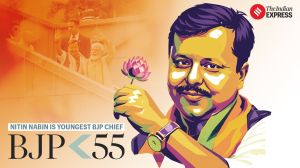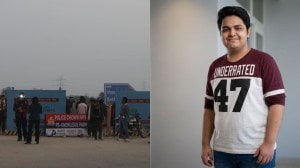Pay, Pack, Follow
The other story of India8217;s missions abroad

The other story of India8217;s missions abroad
When he was summarily recalled from a diplomatic assignment in Damascus during 1870, the British Arabist Richard Burton left brief instructions to his wife: 8220;Pay, pack and follow.8221; Forever sweeping up after their husbands, the wives are the least acknowledged part of the high-profile diplomatic universe.nbsp;
In no profession does a wife or spouse these days play a more critical role than in the foreign service. The manager of an attractive table, gracious hostess to the glitterati of the host country, the maker of a thousand samosas at endless receptions, and a shopping guide to demanding visitors, the story of the Indian diplomat8217;s wife has rarely been told. Nilima Lambah, the wife of veteran diplomat Satinder Lambah, tells us that story. And tells it well.nbsp;
Her husband8217;s job, spanning more than three decades, took Nilima to a newly independent Bangladesh and Pakistan, and postings in Rome, Budapest and San Francisco. Nilima8217;s travels abroad were capped by her husband8217;s ambassadorial stints in Islamabad, Bonn and Moscow.nbsp;
A Life Across Three Continents: Recollections of a Diplomat8217;s Wife, appropriately dedicated to 8220;The Foreign Service Wife8221;, is a compelling read since Nilima is an acute observer of events unfolding about her. She was at the right place at the right time 8212; in Bangladesh in the early 1970s, in Germany after its unification and in Russia in the early Putin years. But she makes light of the numerous problems that confront during difficult postings. She writes with a wry sense of humour about political uncertainty during their days in Dhaka, of mastering the intricacies of Italian in Rome and living and entertaining through earthquakes in San Francisco.
But it was clearly the two postings in Islamabad that she enjoyed the most. Nilima8217;s and her husband8217;s family hailed from Lahore and Peshawar respectively and migrated to India during Partition. She writes with great poignancy of their visits to their ancestral homes and the overwhelming sense of loss and belonging in what she describes as the 8220;most interesting and rewarding assignment8221;. The warm response of Pakistan8217;s elite to the Lambahs made Satinder one of
India8217;s most successful high commissioners in Islamabad. Recognising the extraordinary trust Satinder had won from the Pakistani leaders, Prime Minister Manmohan Singh chose him as his special envoy to conduct a highly sensitive back-channel negotiation on Kashmir with Pakistan.nbsp;
Despite the veneer of living the high life, the dressing up for endless rounds of receptions and parties, it is often difficult to retain the same level of enthusiasm and interest in a new country every few years. Early on in her memoir, Nilima voices the difficult choice that foreign-service wives/ spouses are confronted with. Early in her marriage she decides to adopt a pragmatic course to enjoy her postings with no regret for what could have been if she had pursued her own career. In this and many other ways, the memoir is a rare social history of India8217;s diplomatic service.
- 01
- 02
- 03
- 04
- 05































